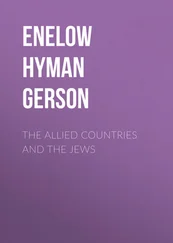Though these were the main motives, other motives must also have been present.
It is impossible that Committees consisting of Jews and suddenly finding themselves thus in control of such new powers, should not have desired to benefit their fellows. It is equally impossible that they should have forgone a sentiment of revenge against that which had persecuted their people in the past. They cannot but, in the destroying of Russia, have mixed with a desire to advantage the individual Russian poor the desire to take vengeance upon the national tradition as a whole; it has even been said—but denied, and I know not where the truth lies—that Jews were among those guilty of the worst incident which we now know in all its revolting details—the murder of the Russian Royal family—father, mother and girls, and the unfortunate sickly heir, the only boy. Further, it is impossible, with Jewish Committees thus in control of the Russian treasury and of Russian means of communication, that they should not have had some sympathy with their compatriots who were so largely in control of Western finance. However sincere their detestation of capitalism (for probably in most of them the opinion is held sincerely enough), it is in the nature of things that one of their blood and kind should, however misguided they may think him, appeal to them more than one of ours. And it is this which explains the half alliance which you find throughout the world between the Jewish financiers on the one hand and the Jewish control of the Russian revolution on the other. It is this which explains the half-heartedness of the defence against Bolshevism, the perpetual commercial protest, the continued negotiations, the recognition of the Soviet by our politicians, the clamour of "Labour" in favour of German Jewish industrialism and against Poland: all that has taken place wherever Jewish finance is powerful, particularly at Westminster.
But, be this as it may, the tremendous explosion which we call Bolshevism brought the discussion of the Jewish problem to a head. The two forces which had hitherto held back the discussion of that problem were that Liberal fiction which had ruled for more than a generation, according to which it was indecent even to mention the word Jew, or to suggest that there was any difference between the Jew and those who harboured him; and, secondly, the fact that the Jews were erroneously regarded by most of the well-to-do people in the West—that is, by most of those who had the control of the Press and therefore of all public expression—as so controlling wealth that they were at once the natural guardians of property and so placed that an attack upon them jeopardized the wealth of the critic. The man who had gone into the City, or who had his life spent upon the Bourse in Paris, or who was negotiating any great capitalist enterprise, who had to do in whatever capacity with the running of the great banks or with the international means of communication by sea and land, even the man who got his precarious living by writing—each and all had hitherto felt that a public silence upon the Jewish problem was necessary to his private welfare.
Those who recognized the gravity of the problem had hitherto been moved by fear to be silent upon it, at least in public, though in private they were often voluble enough. Those who recognized it in a lesser degree had also been affected by the same fear. Lastly, you had the large class who were under no necessity for restraint, whether from fear or any other cause, but who were quite content to leave things as they were so long as they received their regular salary or dividends, and who were profoundly convinced that any interference with the Jew would imperil those dividends or that salary.
The Jewish Bolshevist movement put an end to that state of mind. The people who had hitherto been silent through avarice, convention, or fear, now found themselves between an upper and a nether millstone. Hitherto they had at least believed that to keep silence was to secure or to advance their economic position. Now they found, suddenly risen upon the flank of that position, a new and formidable Jewish force determined upon the destruction of property. There was no longer any reason to keep silent. There was a growing need to speak. And though the old habit, the old secrecy, was still strong upon them, the necessity for combating Jewish Bolshevism was stronger still. All over Europe the Jewish character of the movement became more and more apparent. The leaders of Communism everywhere proclaimed that truth by adopting the asinine policy of pretending that the revolution was Russian and national; they attempted—far too late—to hide the Jewish origins of its creators and directors, and made a childish effort to pretend that the Russian names so innocently put forward were genuine, when the real names were upon every tongue. Yet at the same time they were receiving money and securities of the victims through Jewish agents, jewels stripped from the dead or rifled from the strong boxes of murdered men and women. In one specific instance the promise of a subsidy to a Communist paper in London was traced to this source; it was proved that the Englishman involved was a mere puppet and that the Jewish connections of the family through marriage were the true agents in the transaction. In another a Trade Deputation was pompously announced under Russian names, which turned out upon inspection to consist, as to its first member, of a man engaged all his life in the service of a Jewish firm, as to the other, of a Jew who was actually the brother-in-law of Braunstein! The diplomatic agent nominated and partially accepted by the British Government to represent the new authority of the Russian towns was again a Jew, Finkelstein, the nephew by marriage of a prominent Jew in this country. He passed under the name of Litvinoff. So it was throughout the whole movement, in every capital and in every great industrial town.
We must not neglect the very obvious truth that in all this there was ample fuel for the flame. The industrial proletariat throughout the world was equally disgusted and equally ready for revolt. The leadership of the movement may be Jewish but its current was not created by the Jew. To imagine that is to fall into the most childish errors of the "Anti-Semite." The stream of influence arose from the sufferings and the burning sense of injustice which industrial capitalism had imposed on the dispossessed mass of wage earners. They were (and are) naturally indifferent as to whether those whom they hope may be their saviours come from Palestine, Muscovy or Timbuctoo. They are interested in economic freedom: in the doctrine of socialism and in its results, not in the personality of those who guide them.
Their position is comprehensible enough: but my point is, that the directing minority of Western European capitalism which had hitherto been silent upon the Jewish problems from the motives I have described were now released; they were free to speak their mind, and began to speak it. The volume of their protest cannot but increase. The cat, as the expression goes, is out of the bag, or, to put it in more dignified language, the debate will now never more be silenced. It is admitted that the revolutionary leadership is mainly Jewish. It is recognized as clearly now as it has long been recognized that international finance was mainly Jewish; and even those who would tolerate silence upon the one peril will certainly not tolerate it upon the other.
The danger is, indeed, not over. The debate will take place—that is no peril, but a good; the danger is rather that, as restraint is gradually removed, the natural antagonism to the Jewish race, felt by nearly all those who are not of it and among whom it lives, may take an irrational and violent form, and that we may be upon the brink of yet one more of those catastrophes, of those tragedies, of those disasters which have marked the history of Israel in the past.
Читать дальше












